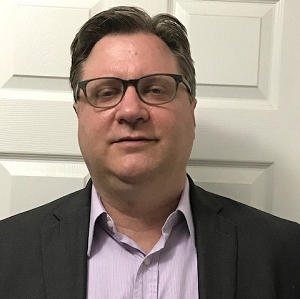Understanding the AMO-OMSSA Partnership
By Michael Jacek
May 2022

I want to talk to you about how OMSSA and the Association of Municipalities of Ontario (AMO) work together. OMSSA members may not realize that our organizations are already joined at the hip and together we can accomplish much through collaboration while being mindful of our respective roles and contributions.
First, a refresher about
AMO for you. Our association speaks with one voice for Ontario‘s municipalities. Most of the 444 municipal governments in Ontario are members. AMO is political, but strictly non-partisan. By political, I mean that our members are the municipal councils, and our
Board is made up of 43 elected officials and municipal staff from across the province. Our Board represents the diversity across the province organized by caucuses to represent large urban, small urban, region and single tier, rural and northern. AMO also works closely with other municipal associations that you would be aware of.
As a non-partisan organization, we promote the municipal corporate interest. The Board sets strategic priorities that help advance these municipal interests. Policy is developed through task forces with both elected officials and staff represented, as well as other allied organizations we work with such as the Ontario Federation of Indigenous Friendship Centres, AdvantAge Ontario and the Canadian Mental Health Association.
This work could not be done without close collaboration with OMSSA. In my role, I take advice from municipal staff and convey it to my Board of Directors. From there, AMO elevates service manager concerns and proposed solutions to the political level when consistent with AMO principles.
And what are these principles?
- Generally, AMO advocates for ways to improve the quality of life for residents in a way that is also affordable for municipalities.
- We oppose unfunded mandates from the provincial government.
- Autonomy and flexibility to make decisions that meet unique local needs and circumstances are important.
- We are fond of saying that ’one size fits all‘ solutions will not work.
In terms of
advocacy relevant to OMSSA, it is no coincidence that I have responsibility for both human services and health policy in my portfolio. AMO knows that better integration with municipal and provincial services will lead to more successful outcomes, and our advocacy to the provincial government promotes and reflects this. Our advocacy on
Ontario Health Teams is one example.
AMO‘s
2022 Provincial Election Strategy will also be of interest to OMSSA members. We are advocating for the government to work more closely with us on finding innovative housing solutions and developing an integrated approach to mental health and addictions. AMO is also calling for review of the funding adequacy for human and health service cost-shared programs.

I am optimistic about the future of achieving progress in human and health services, though it is not without challenges. There seems to be a consensus politically that these services are essential for an inclusive economic and social recovery from the pandemic with commitments to people-centred approaches. However, we do need to work to advocate for integrated, whole of government approaches to matters such as ending homelessness. There is also a fiscal reality to be mindful of, as governments may rein in spending in some areas in the future.
Knowing this, AMO and OMSSA can work together to jointly advocate and to mitigate any impacts. We already have a close working relationship. Generally, our advocacy positions are well aligned. AMO staff regularly participate in OMSSA‘s networks including the 47 Leads meetings and the Policy Advisory Committee to hear what people are saying is needed.
Our staff collaboration works, though I believe that both our associations can do a better job promoting awareness of AMO‘s advocacy to the OMSSA membership and that our Boards can continue improving how we inform each others policy advocacy work.
I would say from the AMO perspective, that there have sometimes been concern over the years that municipal staff associations get ahead of elected officials with their advocacy, especially when if comes to fiscal matters and federal-provincial-municipal relations. It is important that we speak together as one voice to the government and that advance notice of OMSSA‘s policy positioning intent can be communicated to the AMO Board and vice-versa before it is submitted to the government by our respective associations.
I do believe that AMO and OMSSA could also be more reinforcing of each other. For example, we would like to see OMSSA formally support AMO‘s advocacy calls such as
ending homelessness. On AMO‘s part, we could be more reinforcing of OMSSA‘s advice to the government in real time. But based on the working relationship we have and continue to develop; I am confident that this will happen.
Any OMSSA member can feel free to reach out to me with any questions or comments about this blog post and OMSSA and AMO‘s partnership. My email is
mjacek@amo.on.ca.
 I want to talk to you about how OMSSA and the Association of Municipalities of Ontario (AMO) work together. OMSSA members may not realize that our organizations are already joined at the hip and together we can accomplish much through collaboration while being mindful of our respective roles and contributions.
I want to talk to you about how OMSSA and the Association of Municipalities of Ontario (AMO) work together. OMSSA members may not realize that our organizations are already joined at the hip and together we can accomplish much through collaboration while being mindful of our respective roles and contributions.  I am optimistic about the future of achieving progress in human and health services, though it is not without challenges. There seems to be a consensus politically that these services are essential for an inclusive economic and social recovery from the pandemic with commitments to people-centred approaches. However, we do need to work to advocate for integrated, whole of government approaches to matters such as ending homelessness. There is also a fiscal reality to be mindful of, as governments may rein in spending in some areas in the future.
I am optimistic about the future of achieving progress in human and health services, though it is not without challenges. There seems to be a consensus politically that these services are essential for an inclusive economic and social recovery from the pandemic with commitments to people-centred approaches. However, we do need to work to advocate for integrated, whole of government approaches to matters such as ending homelessness. There is also a fiscal reality to be mindful of, as governments may rein in spending in some areas in the future. Michael Jacek is a Senior Advisor working for ten years with the Association of Municipalities of Ontario (AMO). His policy portfolio includes human services, health, workforce development, immigration, and education. Prior to joining AMO, Michael worked for the City of Toronto in various capacities such as homlessness services, social assistance, corporate governance, and intergovernmental relations. Other experience involved managing a federal government refugee resettlement program and providing business development information in a joint federal-provincial agency. Michael has also been an elected union official and active volunteer with local health and social service community agencies. He lives in Toronto but grew up in the small town of Dundas which is now part of the City of Hamilton. Michael‘s education is in Political Science, so it is no accident that he ended up working for government.
Michael Jacek is a Senior Advisor working for ten years with the Association of Municipalities of Ontario (AMO). His policy portfolio includes human services, health, workforce development, immigration, and education. Prior to joining AMO, Michael worked for the City of Toronto in various capacities such as homlessness services, social assistance, corporate governance, and intergovernmental relations. Other experience involved managing a federal government refugee resettlement program and providing business development information in a joint federal-provincial agency. Michael has also been an elected union official and active volunteer with local health and social service community agencies. He lives in Toronto but grew up in the small town of Dundas which is now part of the City of Hamilton. Michael‘s education is in Political Science, so it is no accident that he ended up working for government.